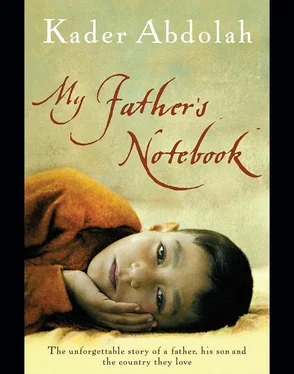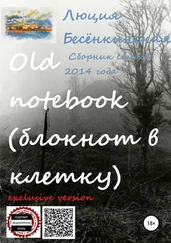All evening and all night young men from the neighbouring villages poured into the mosque in Saffron Village.
Early the next morning hundreds of men walked behind the village elder and stood in the designated spot at the foot of the mountain. One of those men was the seventeen-year-old Aga Akbar. He didn’t have the faintest idea who Reza Shah was or what he had in mind, much less what his plans for the country were. Like the other men, he had no idea why the railway tracks had to reach the other side of the mountain so quickly. All he knew was that a train had to go around the cave and that it was their job to save the cuneiform inscription.
Reza Shah stood high on a rock and looked down at the men. The villagers had heard the legends about the shah.
In those days the people in the towns and villages thought of him as a saviour. A powerful man. A champion of the poor. A reformer who wanted to give the country a face-lift.
But his reputation in Tehran was very different. There he was known for his brutal treatment of the opposition.
The shah had ordered that all the opium, tea and sugar be removed from the house of an important mullah, and had kept him under house arrest for three weeks. To the mullah this was tantamount to the death penalty. The shah had ordered the imams to remove their turbans and appear in public with their heads bare. His policemen went through the streets plucking chadors off the women who were still wearing them. When the imams in the holy city of Qom rose up in revolt, Reza Shah ordered that a cannon be placed at the gates of the golden mosque. Then he taunted the leader of the Shiites: “Come out of your hole, you black rat!”
A rat? A black rat? What did he mean by that? He just called our great spiritual leader a black rat! Suddenly hundreds of young imams with rifles appeared on the roof of the golden mosque.
“Fire!” the shah screamed at his officers.
Dozens of imams were killed and dozens arrested. The sacred shrine was partially destroyed. A wave of shock ran through the Islamic world. Shopkeepers turned off their lights. The bazaar closed. People wore black. But the shah wouldn’t listen to reason.
“Are there any more out there?”
No, not a soul was left on the streets and rooftops. Everyone was sitting inside, behind locked doors.
Aga Akbar knew none of these stories. He thought the shah was simply a high-ranking military officer. A general in a strange-looking tunic, with a stick under his arm.
The village elder walked over to the shah, bowed and said, “The men are prepared to sacrifice themselves to realise Your Majesty’s dream.”
Reza Shah didn’t answer. He looked at the peasants. His face was filled with doubt. Would they really be able to solve his problem?
Just then a pair of armoured cars drove up and stopped near the men. Two generals leapt out and raced over to the shah, each holding his cap in one hand and his rifle in the other.
“Everything is ready, Your Majesty!” called one of the generals.
“Unload them!” ordered the shah.
The generals hurried back to the armoured cars.
The soldiers threw open the doors and unloaded hundreds of English pick-axes.
“You!” the shah yelled at the village elder standing before him. “Here are the pick-axes you asked for! If any of your men are lazy, I’ll put a bullet through your head!”
He wheeled around. “Don’t just stand there,” he said to the chief engineer. “Get started!”
The shah headed for his jeep. Suddenly he stopped, as if he’d forgotten something. He returned to his elevated position on the rock and beckoned one of the generals with his baton. In turn, the general beckoned seven soldiers, who were lined up with seven bulging bags in their arms. The soldiers marched over to the shah, deposited the bags on the ground in front of him and snapped back to attention.
“Open them!” he commanded one of the soldiers.
The soldier opened the bags, one by one. The shah took out a handful of brand-new bills.
He turned to the peasants. “Start smashing those rocks!” he ordered. “This money will be your reward. I’ll be back next week!”
“ Jawid shah … Long live the shah!” the men shouted three times.
The shah climbed down again and went over to his jeep.
The engineer quickly led the peasants, each equipped with a pick-axe, to the place where the work on the tracks had come to a halt. The peasants made jokes, flexed their muscles and swore they would reduce even the hardest rocks on Saffron Mountain to rubble. They had no idea what was in store.
Years later, a faded black-and-white photograph proudly displayed on Aga Akbar’s mantle showed him with a pick-axe resting on his right shoulder and a spike — as thick as a tent stake — between the thumb and forefinger of his left hand.
Akbar is turned at a slight angle. The photographer had focused on the pick-axe and spike, but the young Aga Akbar had flexed his muscles, so that your eye is drawn to his bulging biceps rather than to the tools.
When Ishmael was little, Aga Akbar told him a long story about the picture. A story that was actually about his biceps and about the money — the large sum of money — he had earned.
“Come here!” he gestured to his son. “Tell me! Who’s the man in the picture?”
And he launched into a story. “I, Akbar, was very strong. I — and only I — could break that rock with the pick-axe. Can you see the rock? There, in the background. No, you can’t see it, the picture’s no good, it’s old. But there, behind me. Sure you can’t see it? Never mind. That rock had to go, all the rocks had to go. They couldn’t use those exploding things. They were bad for the cuneiform inscription.
“One day I’ll take you to the cave. Wait a minute. Don’t you have a … where’s your schoolbook? Have you ever seen a picture in your schoolbook of an officer, a man in a military tunic with a crown on his head? Isn’t there one in your schoolbook? … Seven, yes, seven potato sacks full of money. And that money was for us. Because of the train.”
Did Ishmael understand what his father was talking about in his rudimentary sign language?
One thing little Ishmael did know was that his life was interwoven with that of his father. Everyone — his mother, his uncles, his aunts, the village imam, the neighbours, the children— made him sit, stand and walk beside his father. His job was to be his father’s mouthpiece.
Later the missing bits of information would be supplied by his aunts and uncles, or by the old men of Saffron Mountain. Or he himself would look up the facts in history books and novels.
More often, however, he would go and visit his father’s elderly uncle. He would sit down by Kazem Khan and listen as he filled in the missing parts of the stories. “Your father was strong. I told him that a railway track was being built. Personally, I’ve never cared for aristocrats and generals and shahs, but I’d heard a lot about Reza Shah. Though I was hoping to catch a glimpse of the man, I didn’t see him.”
“Why not?”
“Because I was stubborn. I rode over there on my horse, but the gendarmes wouldn’t let me through.”
“Why not?”
“Because people weren’t allowed to approach the shah on horseback. You were supposed to go on foot, to grovel on your hands and knees. I refused to do that. I turned around and went home, but I came back the next day, because I wanted to see what the men of Saffron Mountain were doing.”
“Did you go on foot or on horseback?”
“Nobody’s ever seen me go anywhere on foot. I looked at the men from a distance. They were working in shifts, around the clock, smashing the rocks and clearing a road for the train.”
“Did the men manage all right with the pick-axes? I mean, did they finish the road on time?”
Читать дальше












